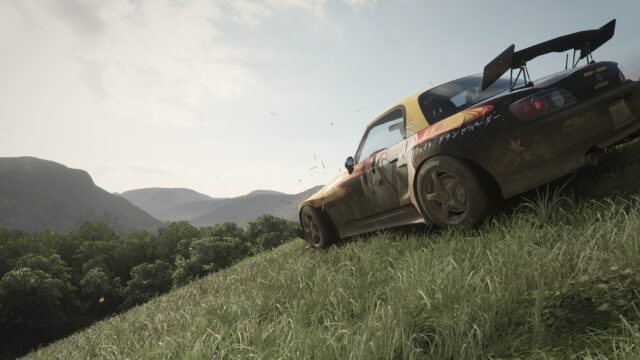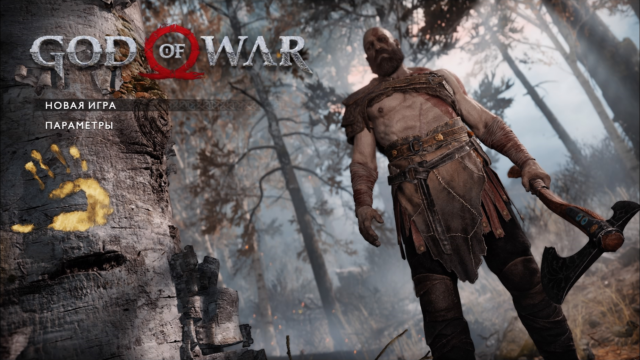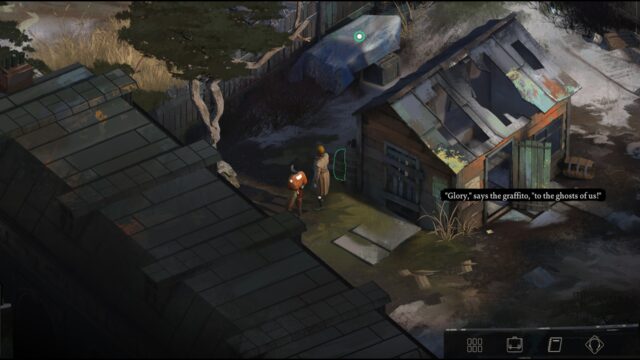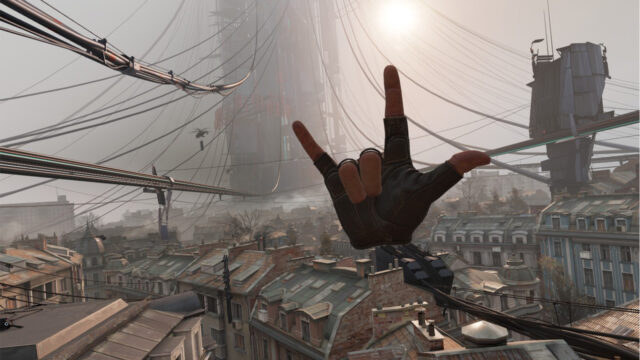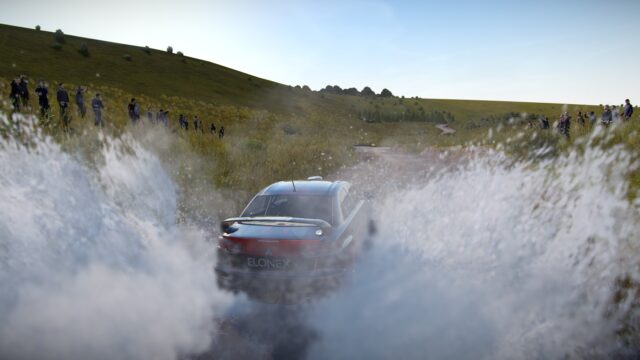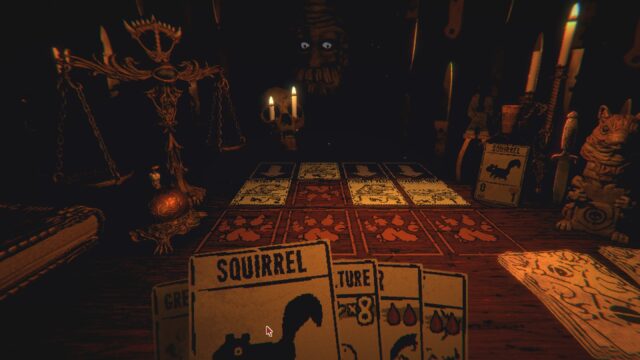35MM Review
Like many strong and independent games, 35MM once again makes virtual humanity suffer. It ruthlessly unleashes another disease upon the planet and coldly observes as people hurriedly scatter cars around the neighborhood, write each other farewell letters, and meet their end in the most dramatic poses – creating an atmosphere, in general. An atmosphere for a story about survivors, about a degraded society ready to lie, betray, and kill for a piece of bread or a roof over their heads. For discussions on the topic of the end of the world, real or metaphorical, its prerequisites and consequences.
Well, or simply for a tale about a disease, immunity to which is only possessed by village thugs, grandfathers in shirts, and our two heroes, heading somewhere unknown and for some unknown reason.
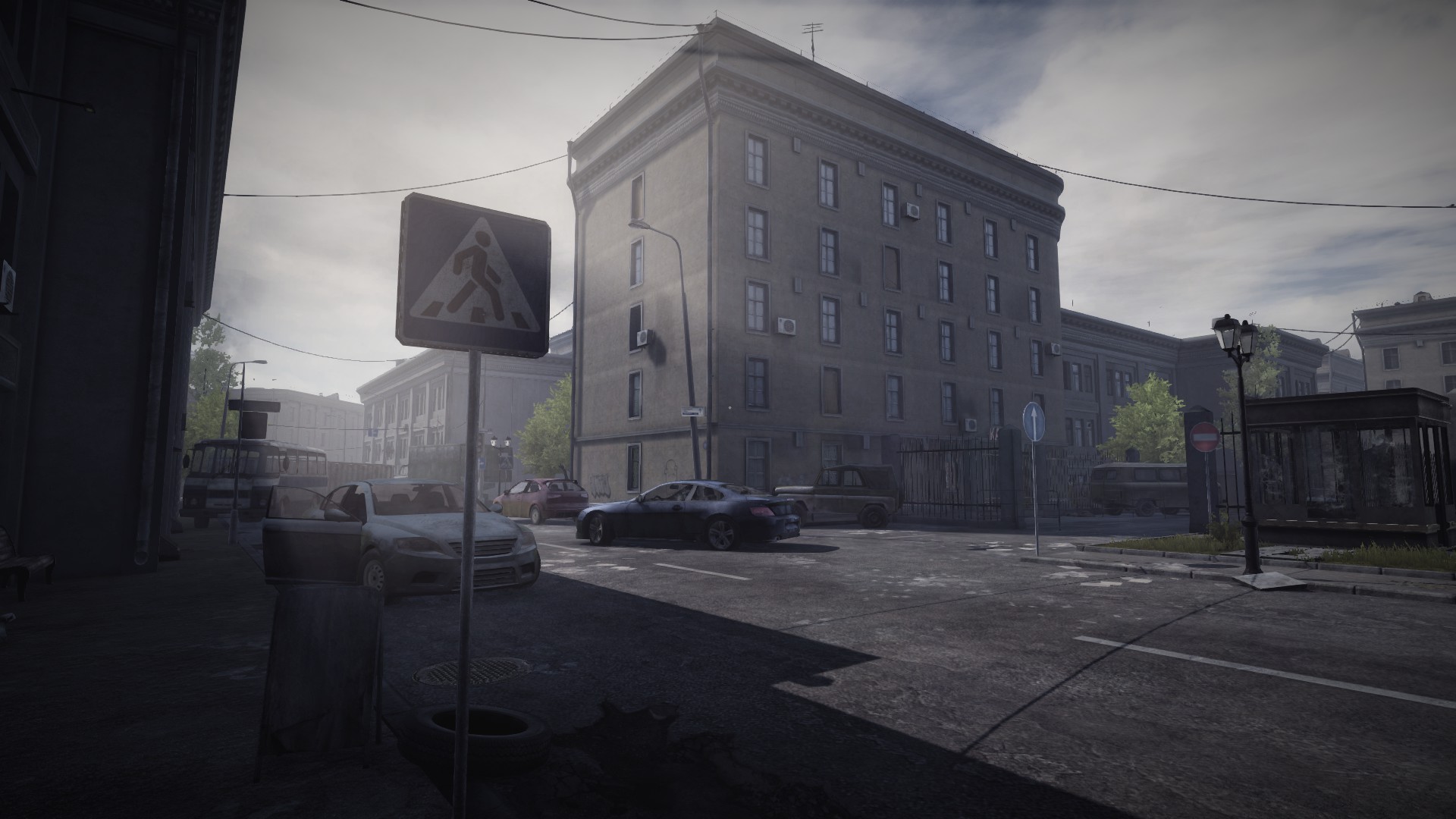
Given the “Story Rich” tag in the store, let’s assume that the emphasis was indeed on the content and make a fair observation: for a story-driven adventure, the game is too superficial. The setup is not particularly promising, but it had potential, especially because a post-apocalyptic setting is one of the most conducive for empathetic storytelling. Think of The Walking Dead, The Last of Us, or even the movie “The Road” – they all relied on empathy and constant concern for the characters. Here, however, there is no one to worry about from the start.
Despite the small number of characters in 35MM, they are all pale shells devoid of personalities, motives, and relationships. At best, someone turns out to be simply bad without any visible reason, while it is impossible to understand what the rest represent and, most importantly, why they even appear on the screen. Unfortunately, this also applies to the main characters, who hardly communicate with each other, and if they do open their mouths, it is only to utter pseudo-philosophical nonsense. Initially, such mysteriousness seems quite appropriate, but by the end of the second hour, the hope of seeing them as living individuals irreversibly disappears. Even the interesting connection between the game’s title and the protagonist’s pocket camera could not be properly developed. So what if the guy likes to click with his lens, why bother?
As a result, the ending, which relies entirely on emotional attachment that should have been formed during gameplay, is not impressive at all. It is slightly surprising, yes, but it is more of a reaction like “oh, so that’s how it is” instead of the planned catharsis.
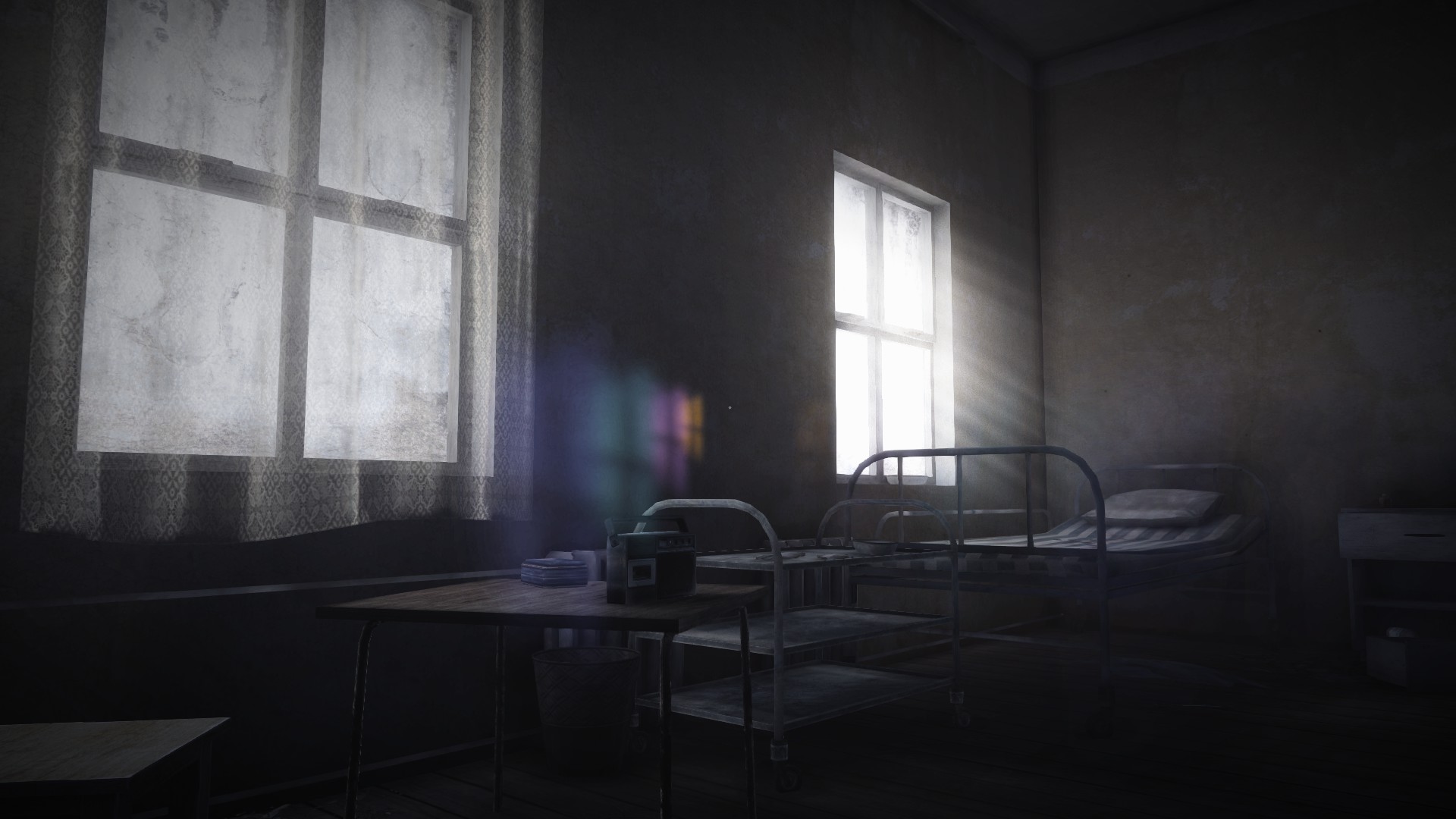
There is also something to talk about before the epilogue. The path to it turned out to be no less controversial.
The main focus here, of course, is on exploration. Many moments involve solving a simple task of finding an object/code, but no one prohibits veering off and digging around in the surroundings. Unfortunately, exploration is usually rewarded with empty boxes and non-interactive props, and rare notes about how difficult it was for the second corpse on the left don’t add much value, so there is no real point in deviating from the main path.
From time to time, they include a real shooter for the sake of variety, and it’s a big mistake. The enjoyment from it is about the same as, let’s say, You Are Empty – questionable with a taste of missed progress. And why this element was introduced in the first place, we don’t know, but it seems completely unnecessary and out of place. Perhaps to justify the equally pointless survival mechanics of collecting and eating canned food?
Credit should be given, the journey turned out to be quite diverse, but none of its aspects are implemented at a decent level. Occasionally clicking on the food icon to avoid dying, staring at empty locations, completing fetch quests, and shooting frustratingly resilient targets is simply boring. It seems that this is exactly the case where no one would be disappointed if everything was presented as a high-quality “walking simulator” – it’s better to have one solid mechanic at the center than several mediocre ones, right?
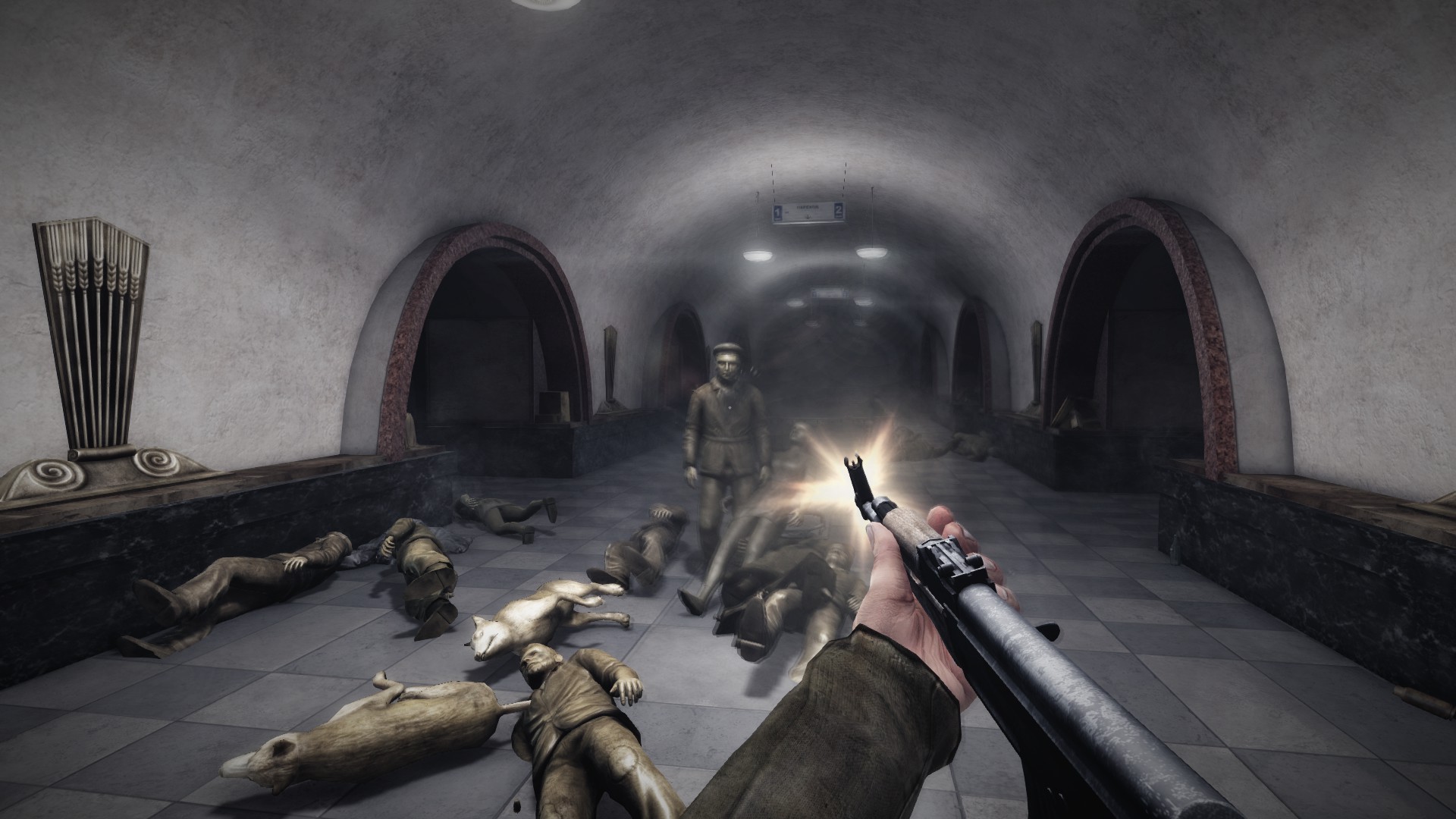
Don’t ask. Please.
In terms of visuals, there is even less revelation. There is no need to cry over the graphics, but the game looks, to put it mildly, much more attractive in the screenshots – primarily because you can’t see the animation level of “Sea. Utopia”, blurry textures, and primitive geometry with ubiquitous jagged edges. Given the modest scale of the project, this is quite understandable, but today even the tiniest indies compensate for technical weaknesses with meticulous attention to detail, and here there is no joy for the eyes in that regard. The author definitely has artistic talent, judging by his other works, so why did he stay on the sidelines?
Nevertheless, good lighting, the right color palette, and everything else necessary to maintain the correct mood and atmosphere are present here. 35MM is permeated with its misty hopelessness, the effect of which is enhanced by the familiar landscapes with huts and rusty “UAZs” – recognizable cultural markers give the environment a frightening naturalness, and that is worth a lot. However, the integrity of the local aesthetics occasionally falters, which is why huge LCD monitors often stand next to Soviet equipment, but such details get lost in the overall picture.
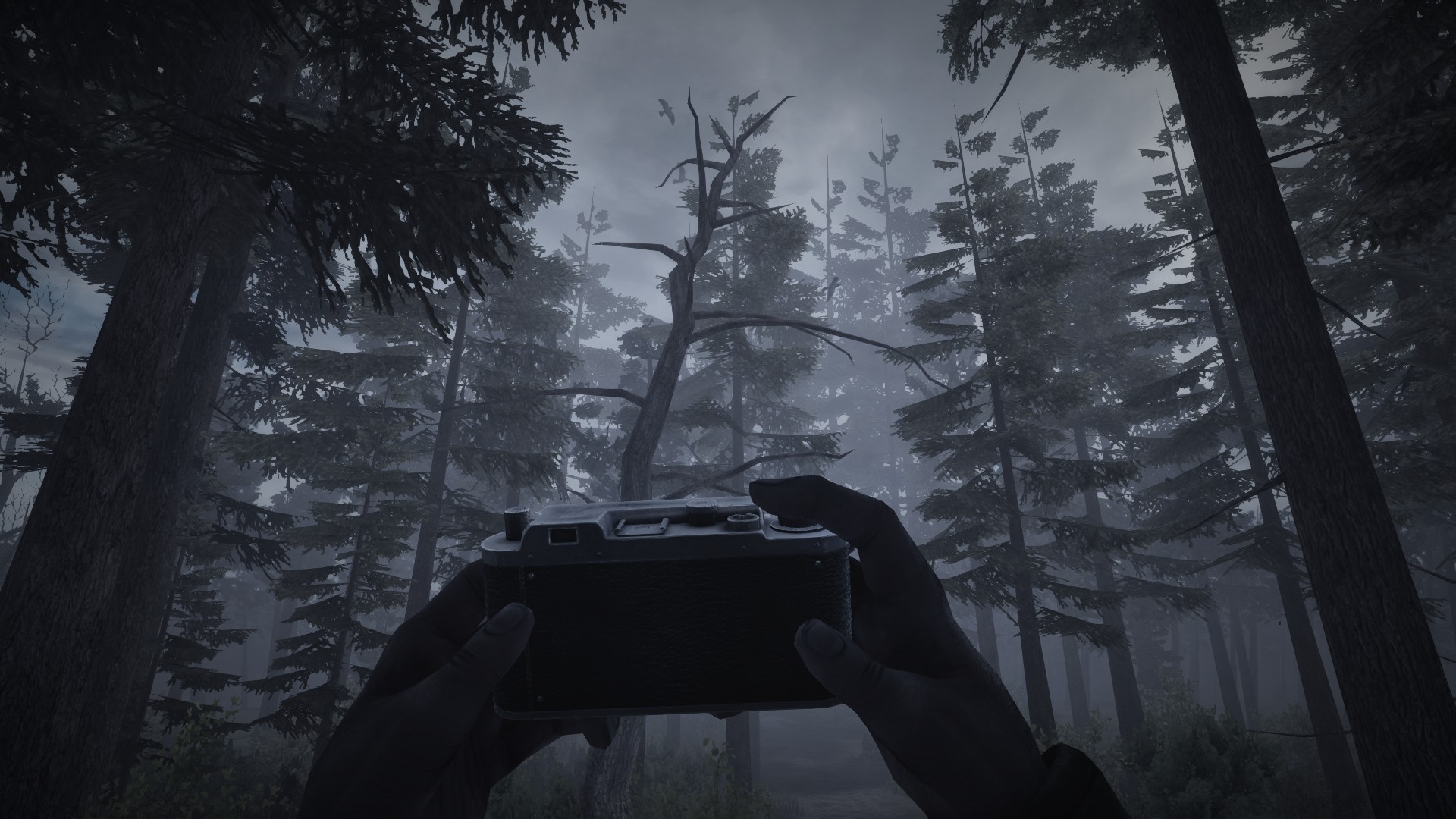
It is even more frustrating that despite its merits, the game world is criminally static. Everything around, including NPCs, simply exists for someone to come and disrupt the nest of scripts. Nothing happens until the player intervenes. Passing by an improvised football field, you expect to see children playing with a ball (which is somehow nailed to the ground), bypassing someone’s house – how people arrange their lives, and when a villager interrupts a conversation with the phrase “time to move aside,” you still want him to actually go to sleep. But none of this happens for some reason. Decorations, even dead ones, you know, need some kind of life, otherwise the performance turns into an unbelievable spectacle.
The poor sound design adds fuel to the fire. The effects, for the most part, are tolerable: sometimes one sample is looped too clumsily, and another one overpowers all the others in volume, but there is nothing critical about it. The voice acting of the characters is the problem. We understand budget constraints and all, but to deliver lines with such monotonous intonations, you have to try really hard. Honestly, if the dialogues were only presented through subtitles, it definitely wouldn’t be worse.
The whole game is also plagued by a slight tedium. It feels like the partner is deliberately moving so that you overtake them, moving backwards, and in the cutscenes, meaningless scenes are savored for a painfully long time, followed by a silent pause of several seconds after each line. We have nothing against a measured pace, but this irritating slowness is just too much.
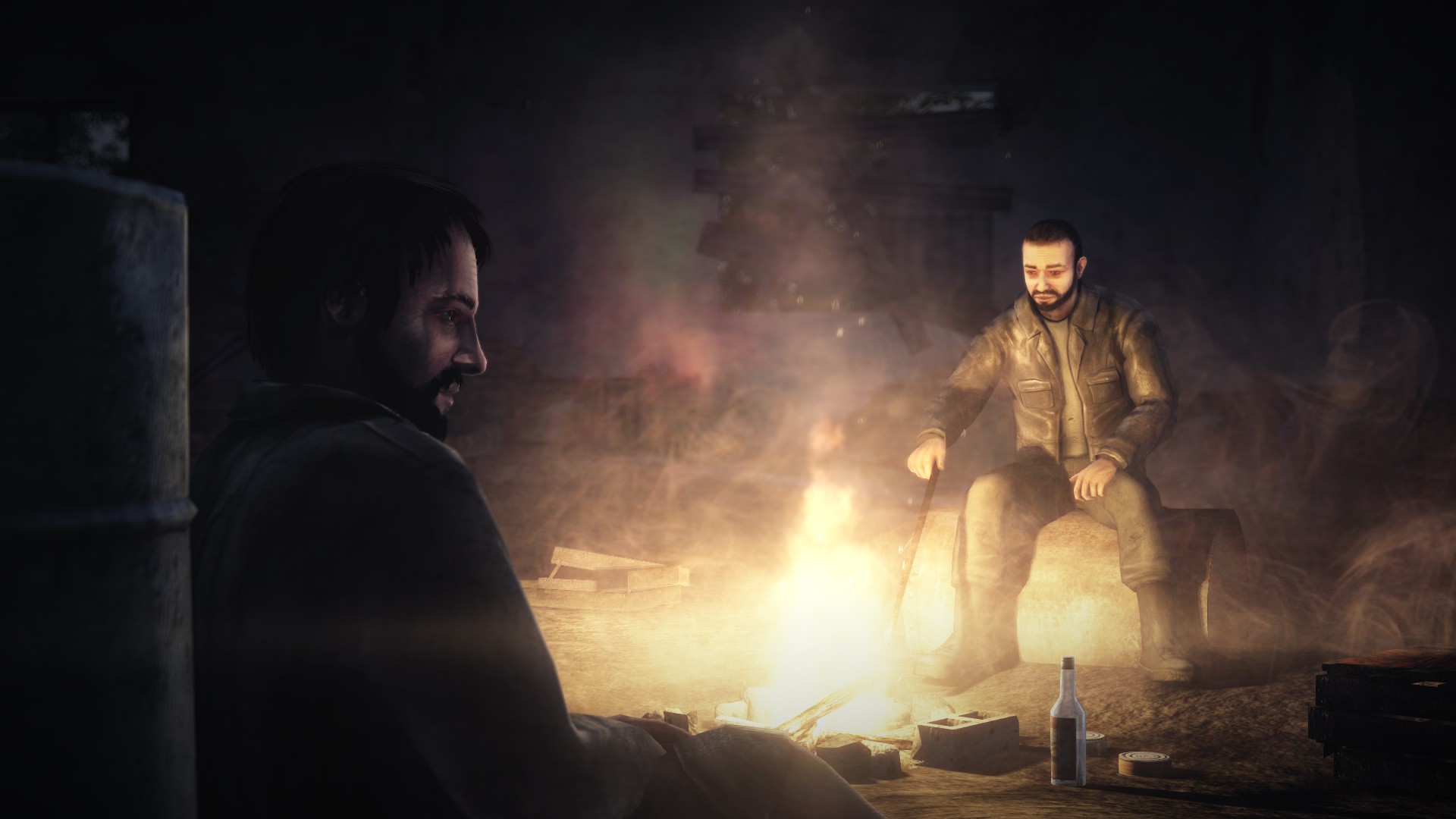
Starting with nothing and ending, for the most part, with the same nothingness, 35MM left behind an unpleasant emptiness. There was no emotional impact, no food for thought, no satisfying gameplay – it turned out to be a crumpled and unfinished post-apocalyptic drama that passed before our eyes without a clear purpose. Or rather, it crawled. The game was very sluggish.
In any case, the attempt is more than commendable. Despite the numerous flaws, the test drive of a potentially interesting universe can be considered successful. We look forward to the next project.
Share
Discuss
More Reviews
